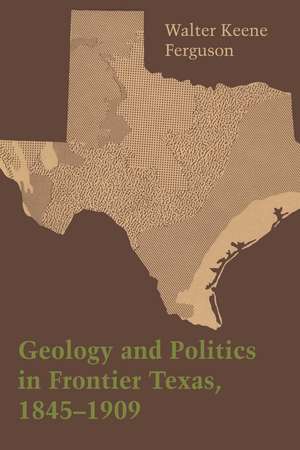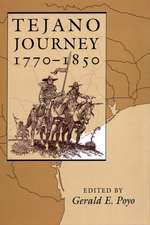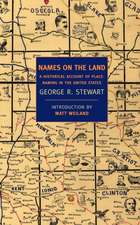Geology and Politics in Frontier Texas, 1845–1909
Autor Walter Keene Fergusonen Limba Engleză Paperback – 1969
Walter Keene Ferguson examines the relation of politics to geological exploration during a critical period in Texas history—the first half-century of statehood. Although Texas shared its frontier experience with many other areas, it could not rely on federal aid in the form of land grants because the state government controlled the destiny of the public domain at all times. Acrimonious debate between farmers and urbanites of East Texas and pioneer ranchers of arid West Texas rendered the disposition of public lands even more difficult.
As tools for developing and advertising resources, the geological and agricultural surveys of 1858 and 1867 fulfilled the demands of expectant capitalism made by politicians, speculators, and railroad entrepreneurs. Reconnaissance geologists publicized the wealth of Texas.
Drought in 1886 and popular agitation against squandering of state land caused the emergence of a new concept of the geological survey as an instrument of land reform and public assistance. Lobbying by reformers and scientific organizations led to the formation of the Dumble Survey in 1888 and the University of Texas Mineral Survey in 1901. Stratigraphic analysis of the “individualities” of Texas geology helped the state realize its full economic potential and led to legislation to protect public mineral land from exploitation.
The youthful oil industry finally removed geological exploration from the political arena. As part of the University, a permanent Bureau of Economic Geology was established in 1909 to extend the benefits of scientific research to private citizens and state organizations on a nonpartisan basis.
Ferguson’s analysis of geological surveys in Texas contributes to an understanding not only of the geology and history of the state but of the urgent problem of evaluating the natural resources of underdeveloped regions.
Preț: 199.67 lei
Nou
Puncte Express: 300
Preț estimativ în valută:
38.21€ • 39.75$ • 31.55£
38.21€ • 39.75$ • 31.55£
Carte tipărită la comandă
Livrare economică 15-29 aprilie
Preluare comenzi: 021 569.72.76
Specificații
ISBN-13: 9781477300800
ISBN-10: 1477300805
Pagini: 248
Dimensiuni: 152 x 229 x 15 mm
Greutate: 0.37 kg
Editura: University of Texas Press
Colecția University of Texas Press
ISBN-10: 1477300805
Pagini: 248
Dimensiuni: 152 x 229 x 15 mm
Greutate: 0.37 kg
Editura: University of Texas Press
Colecția University of Texas Press
Notă biografică
Walter Keene Ferguson is unusually qualified to analyze the interactions of politicians and geologists on the Texas frontier, holding bachelor’s and master’s degrees in geology and a PhD degree in history from the University of Texas at Austin.
Cuprins
- Preface
- 1. Scientific and Political Preludes to State Geological Survey
- 2. The Shumard Survey: Texas Begins to Develop Its Resource
- 3. The Gilded Age: Expectant Capitalism in Frontier Texas
- 4. Geological Résumé: Reconnaissance Geologists Discover the “Individualities” of Texas Geology
- 5. The Dumble Survey: Texas Initiates Land Reforms
- 6. The Dumble Survey and the Diffusion of Public Resources
- 7. The Phillips Survey: A Classical Resource Study of Undeveloped Public Lands
- 8. Geological Résumé: Stratigraphers Interpret the “Individualities” of Texas Geology
- 9. The Bureau of Economic Geology: Geological Research Leaves the Political Arena
- Appendices
- A. The Geological and Agricultural Survey Act of 1858
- B. The Resolution Suspending the Geological and Agricultural Survey in 1861
- C. The Geological Survey Act of 1870
- D. The United States Geological Survey Cooperates with the States
- E. The Geological and Mineralogical Survey Act of 1888
- F. The Hill-Dumble Controversy
- G. The University of Texas Mineral Survey Act of 1901
- H. Press Release of July 1909 Defining the Functions of the Bureau of Economic Geology
- Bibliography
- Index
Descriere
The relation of politics to geological exploration during the first half-century of Texas statehood.














